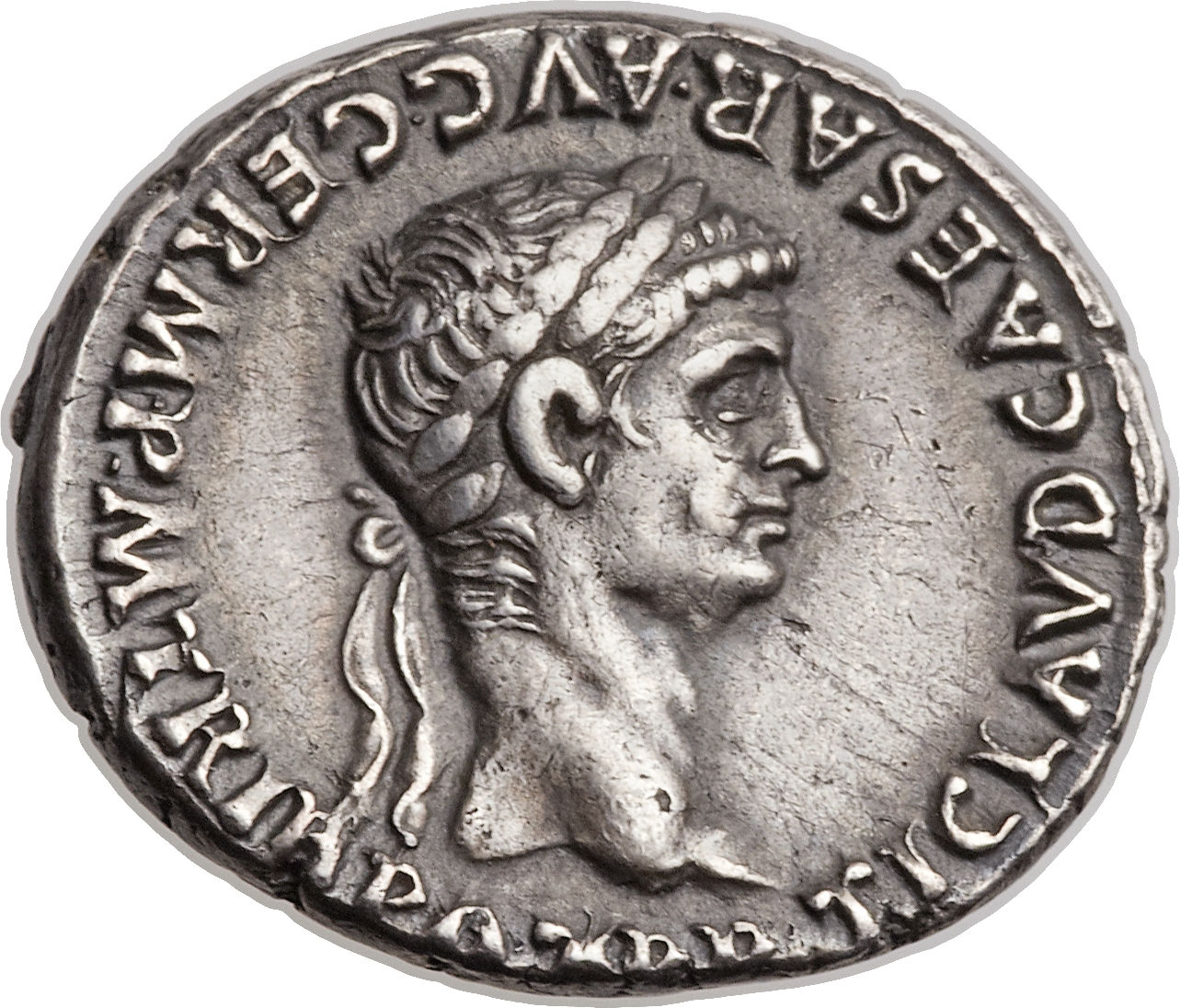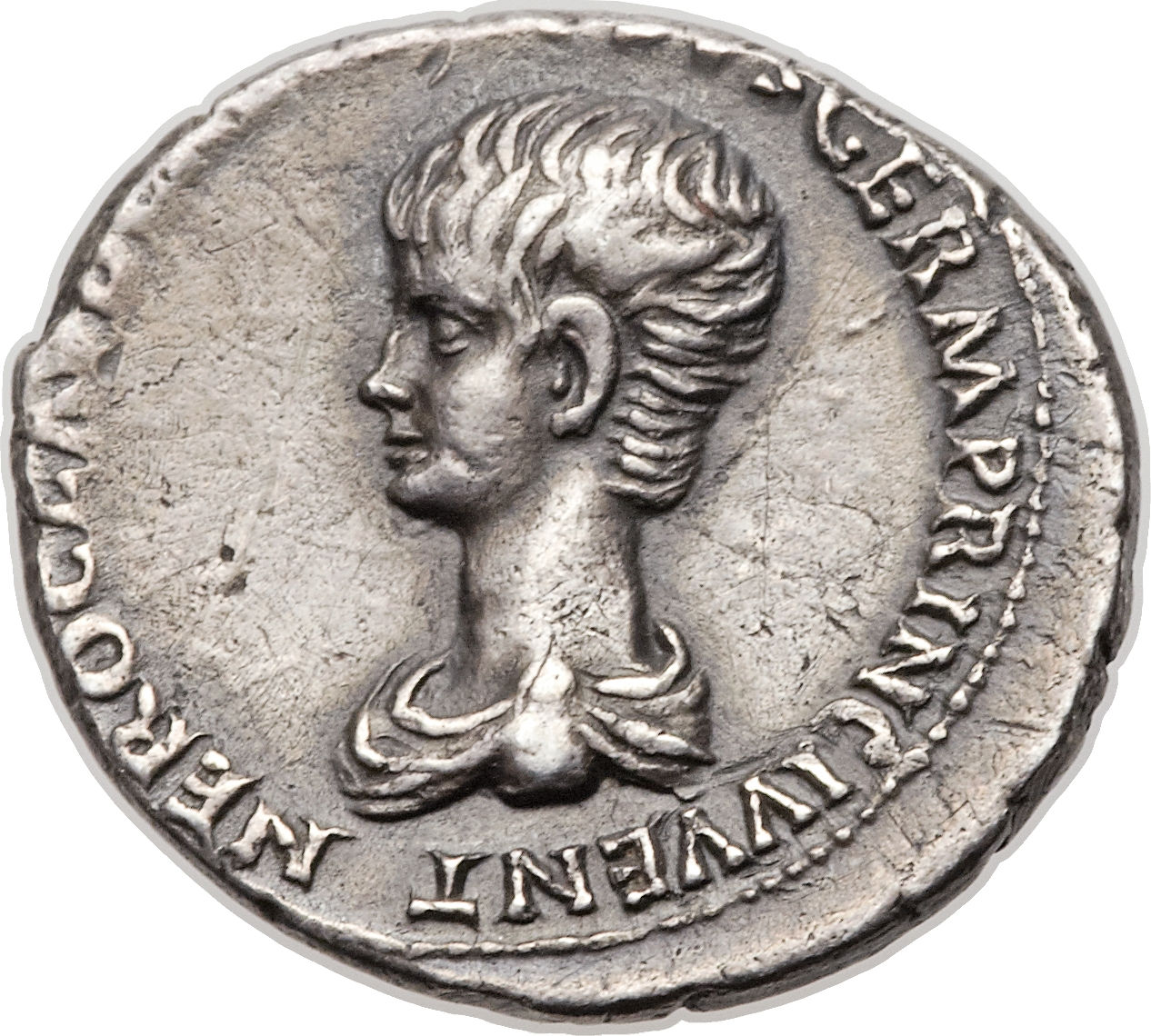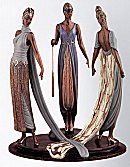Additional References: RSC 5, BMC 80
Notes: Laureate head of Claudius right / Bare-headed and draped bust of Nero left
Obverse: Claudius (Latin: Tiberius Claudius Caesar Augustus Germanicus;[1][2] 1 August 10 BC – 13 October 54 AD) was Roman emperor from 41 to 54. A member of the Julio-Claudian dynasty, he was the son of Drusus and Antonia Minor. He was born at Lugdunum in Gaul, the first Roman Emperor to be born outside Italy. Because he was afflicted with a limp and slight deafness due to sickness at a young age, his family ostracized him and excluded him from public office until his consulship, shared with his nephew Caligula in 37.
Claudius’ infirmity probably saved him from the fate of many other nobles during the purges of Tiberius and Caligula’s reigns; potential enemies did not see him as a serious threat. His survival led to his being declared Emperor by the Praetorian Guard after Caligula’s assassination, at which point he was the last man of his family.
Despite his lack of experience, Claudius proved to be an able and efficient administrator. He was also an ambitious builder, constructing many new roads, aqueducts, and canals across the Empire. During his reign the Empire began the conquest of Britain (if the earlier invasions of Britain by Caesar and Caligula’s aborted attempts are not counted). Having a personal interest in law, he presided at public trials, and issued up to twenty edicts a day. He was seen as vulnerable throughout his reign, particularly by elements of the nobility. Claudius was constantly forced to shore up his position; this resulted in the deaths of many senators. These events damaged his reputation among the ancient writers, though more recent historians have revised this opinion. Many authors contend that he was murdered by his own wife. After his death in 54 AD (at age of 63), his grand-nephew and adopted son Nero succeeded him as Emperor.
He was a descendant of the Octavii Rufi (through Gaius Octavius), Julii Caesares (through Julia Atii and Julia Antonii) and the Claudii Nerones (through Nero Claudius Drusus); he was a great-nephew of Augustus through his full sister Octavia Minor, an uncle of Caligula and finally a great-uncle of Nero through Caligula’s father and Nero’s grandfather Germanicus.
Claudius’ infirmity probably saved him from the fate of many other nobles during the purges of Tiberius and Caligula’s reigns; potential enemies did not see him as a serious threat. His survival led to his being declared Emperor by the Praetorian Guard after Caligula’s assassination, at which point he was the last man of his family.
Despite his lack of experience, Claudius proved to be an able and efficient administrator. He was also an ambitious builder, constructing many new roads, aqueducts, and canals across the Empire. During his reign the Empire began the conquest of Britain (if the earlier invasions of Britain by Caesar and Caligula’s aborted attempts are not counted). Having a personal interest in law, he presided at public trials, and issued up to twenty edicts a day. He was seen as vulnerable throughout his reign, particularly by elements of the nobility. Claudius was constantly forced to shore up his position; this resulted in the deaths of many senators. These events damaged his reputation among the ancient writers, though more recent historians have revised this opinion. Many authors contend that he was murdered by his own wife. After his death in 54 AD (at age of 63), his grand-nephew and adopted son Nero succeeded him as Emperor.
He was a descendant of the Octavii Rufi (through Gaius Octavius), Julii Caesares (through Julia Atii and Julia Antonii) and the Claudii Nerones (through Nero Claudius Drusus); he was a great-nephew of Augustus through his full sister Octavia Minor, an uncle of Caligula and finally a great-uncle of Nero through Caligula’s father and Nero’s grandfather Germanicus.
Denomination: In the Roman currency system, the denarius was a small silver coin first minted about 211 BC during the Second Punic War. It became the most common coin produced for circulation but was slowly debased in weight and silver content until its replacement by the double denarius, called the antoninianus, early in the 3rd century AD. The word denarius is derived from the Latin dēnī "containing ten", as its value was 10 asses, although in the middle of the 2nd century BC it was recalibrated so that it was now worth sixteen asses or four sestertii. It is the origin of several modern words such as the currency name dinar; it is also the origin for the common noun for money in Italian denaro, in Portuguese dinheiro and in Spanish dinero.
From Wikipedia
From Wikipedia
Period: Imperial Rome. As the Roman Republic began to implode because of
corruption and infighting among powerful members of the Roman Senate, a new type of
Roman Republican coinage emerges, that of the military strongmen who dominated and
fought among each other before the final fall of the Republic. The drama surrounding
the fall of the Roman Republic is a story full of political intrigue, military action, betrayal,
murder and sex scandals. Different parts of this story have been told and retold by
ancient historians, modern day scholars, dozens of Hollywood movies and even an HBO
miniseries. All of the actors in this great drama, Crassus, Pompey, Julius Caesar, Brutus
and Cassius, Mark Antony and Cleopatra and the last man standing at the end of it all,
Octavian (later known as the first emperor of Rome, Emperor Augustus) all minted coins
during this time bearing their names and propaganda images supporting their factions
and political ideals.
Culture: Ancient Rome. A famous catch phrase "Rome was not built in a day"
definitely applies to the Roman civilization. Rome stated as a series of small villages among the
famous seven hills of Rome along the river Tiber. Eventually through conquest, diplomacy, wise
policies of indirect rule and assimilation, the Romans were able to not only unify the Italian
peninsula, but though a series of brutal wars against regional powers established a great Empire
that spanned Europe, Asia and Africa, making the Mediterrean Sea and "Roman Lake."
All Roman coinage can generally be divided into eight time periods as described below. An interesting thing about Roman coins minted during these eight time periods is that you can literally see the "Rise and Fall" of the Roman Empire on its coinage as the sharp imagery and pure silver and gold coins of the Roman Republic and Early Imperial Period gradually devolves into crude, illegible and heavily debased coins of the "Barracks Emperors" and "Barbarian" Period.
All Roman coinage can generally be divided into eight time periods as described below. An interesting thing about Roman coins minted during these eight time periods is that you can literally see the "Rise and Fall" of the Roman Empire on its coinage as the sharp imagery and pure silver and gold coins of the Roman Republic and Early Imperial Period gradually devolves into crude, illegible and heavily debased coins of the "Barracks Emperors" and "Barbarian" Period.
Item created by: gdm on 2016-08-14 16:03:51
If you see errors or missing data in this entry, please feel free to log in and edit it. Anyone with a Gmail account can log in instantly.
If you see errors or missing data in this entry, please feel free to log in and edit it. Anyone with a Gmail account can log in instantly.








